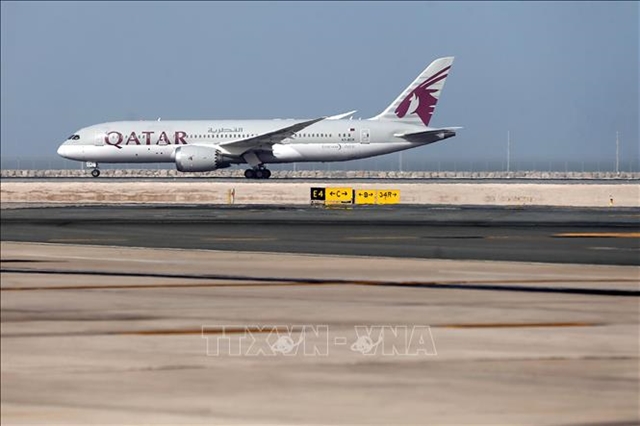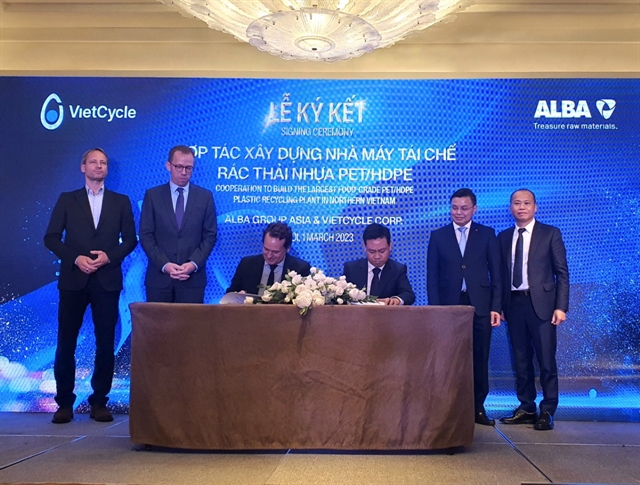 Economy
Economy


|
| Nguyễn Văn Tuấn (right), director of VietCycle, and Tobias Huinink (left), Asia business director of ALBA, sign the agreement. VNS Photo Ly Ly Cao |
HÀ NỘI — VietCycle and ALBA signed an agreement to build the largest recycling plant for PET and HDPE plastics in Việt Nam, which will cost more than US$50 million, on Wednesday.
The recycling plant, which has a capacity of 48,000 tonnes a year, is expected to be operational in 2024.
The project is designed to use cutting-edge German technology to produce rPET plastic that meets international standards set by the European Union (EU) and embraced by many multinational corporations, said Hoàng Đức Vượng, chairman of VietCycle.
“Many Vietnamese plastic producers have lost a lot of contracts demanding high-quality recycled plastic. Therefore, products from the plant will be welcomed,” Vượng said.
The cooperation between ALBA and VietCycle provides a necessary solution to solve plastic waste problems in Việt Nam.
According to the World Bank (WB), Việt Nam is one of the biggest contributors to marine pollution.
Every year, approximately 2.8-3.1 million metric tonnes of plastic waste are discharged on land in Viet Nam, with an additional 0.28-0.73 million metric tonnes into the ocean.
This situation is expected to worsen with rapid urbanisation and strong economic and population growth. By 2030, in less than 15 years, the amount of waste generated in Việt Nam is expected to double from 27 million to 54 million tonnes.
Moreover, as Việt Nam is gradually building a circular economy with policies to improve the responsibility of manufacturers, the plant is expected to increase the role of the recycling industry in the circular value chain.
Speaking at the Signing Ceremony of the Cooperation Agreement to develop the plant, Axel Schweitzer, chairman of ALBA Asia Group, said that: “Plastic is a valuable resource that should not be wasted as it is made from oil. While the production does lead to high CO2 emissions, plastic products can be recovered, reprocessed and recycled."
Therefore, Schweitzer believed that the project can change the perception of plastic as a problem.
The recycling plant is also expected to create more jobs and improve the living conditions of workers who collect plastic products on the streets, he added.
The project is welcomed and supported by the Vietnamese Government, the German Embassy, the Ministry of Natural Resources and Environment, and international brands and organisations such as Unilever, Pepsi, TCP Group, and Dow Chemical. VNS




